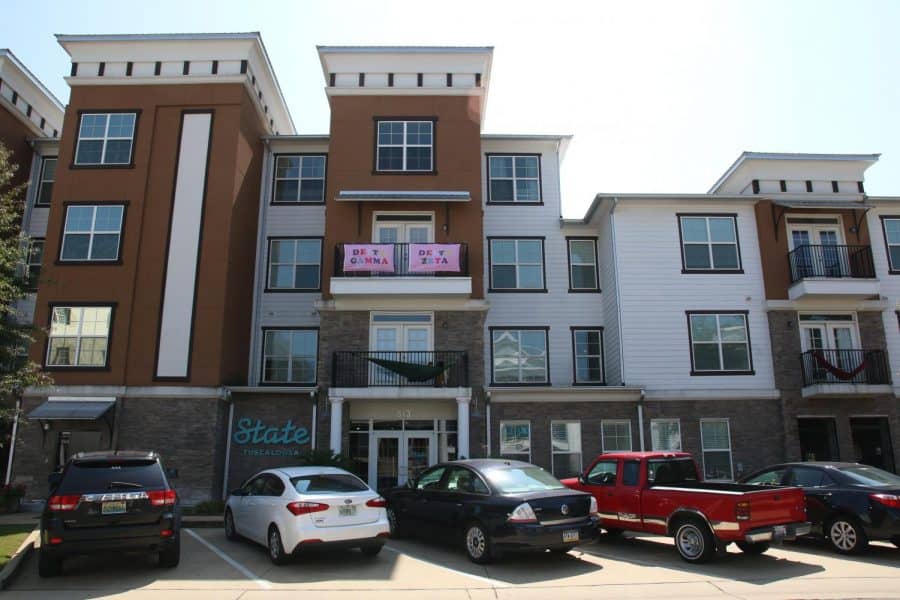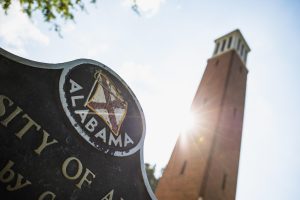City Council moves for sweeping changes in student housing
September 27, 2020
The Tuscaloosa City Council passed an ordinance Tuesday banning the construction of student housing apartments with more than three bedrooms.
The ban does not extend to duplexes, triplexes or any buildings other than multi-family apartments. Data from the Office of Urban Development suggests that the construction of student housing has outpaced the increases in the University’s enrollment over the last several years, leading to widespread vacancies and increased crime.
The city has made efforts in the past to curb construction like forming the Student Rental Housing Task Force in 2013. Recent measures, including charging developers high water and sewer fees to offset the strain on city infrastructure, failed to slow development, Mayor Walt Maddox said.
“There have been thousands of pages of documents and hundreds of hours of public discussions … outlining the negative consequences of mega student apartments,” Maddox said in a Facebook post Tuesday. “However, we don’t need studies, because we see that Tuscaloosa has enough student apartments.”
Ashley Rosen, a junior double majoring in marketing and Spanish, said she agrees with the council’s decision. She lives in a four-bedroom unit at East Edge, an apartment complex near the UA School of Law.
“These apartment complexes are kind of just cashing in on the fact that students live here,” Rosen said. “I think the number of complexes we have should be limited, and I think the city has every right to do that.”
While Rosen said the ban may be unfair to groups of four or five friends, she has seen plenty of vacancies for large units in older complexes.
She also said that COVID-19’s impact on in-person instruction exacerbated Tuscaloosa’s student housing problems.
“I probably wouldn’t have re-signed my lease if I’d known how in-person [classes] would be,” Rosen said. “I wish the University understood how early we have to sign our leases when they’re making these decisions.”
Lawyers from Winter McFarland and Cartee & Lloyd resisted the ban on four- and five-bedroom apartments during the meeting. These firms represent the Chicago-based developers for several new student housing projects in Tuscaloosa.
“This proposal of limiting four and five bedrooms … is really a dagger in our projects,” Mike Cartee, representative for a developer known as Core Projects, said. “This is fundamentally unfair. It does nothing to restrict duplex and triplex sprawl.”
Cartee claimed that the apartment complexes with the highest crime rates were far outside the area formerly known as the University Neighborhood Area. The UNA, now known as the University Residential District (URD), is the land around the University bounded by McFarland Boulevard, 15th Street, and Queen City Avenue.
A violent crime heat map from a 2017 report supports this claim, showing that the worst area was centered around The Path, formerly named Campus Evolution. That complex is about one mile from the URD. However, the crime rates around closer developments are still shown in orange.
Bryan Winter, local attorney and representative for developer CA Ventures, claimed that the ban on four- and five-bedroom units was a blow to fair housing in the city.
“A 2018 comprehensive five-year study said there’s not enough affordable housing,” Winter said. “If there is too much vacancy, which we have no data of, prices go down and people move into [the units].”
Winter and Cartee cited the possibility that working families would be left with fewer options for housing because of the ban.
Ashley Crites, planning director for the city’s Office of Urban Development, said the study Winter referenced was skewed by high-priced student housing.
“The non-student rental market is tight, and student housing distorts [city-wide] pricing,” Crites said. “In my professional opinion, student-oriented housing is not a feasible model for affordable housing.”
A 2020 report listed a lack of accessibly priced housing, rather than a lack of vacancies, as a high-priority impediment to fair housing. The same report, written by Western Economic Services, LLC, an external firm, also said that the city does not do enough to prevent discriminatory lending practices or educate residents on their right to fair housing.
Tuesday’s meeting saw several pieces of legislation that rehaul student housing in Tuscaloosa, including a definition of what even qualifies as student-oriented housing. The council also voted to change the name of the University Area Neighborhood to the University Residential District.
Crites said the council’s vote did nothing more than change the zone’s name, for now.
“We know that in 2004 … that area was more neighborhood in scale,” Crites said. “It’s difficult now to call something with 75-foot buildings a ‘neighborhood.’ By changing the name … it allows us to start thinking about the area differently.”





















